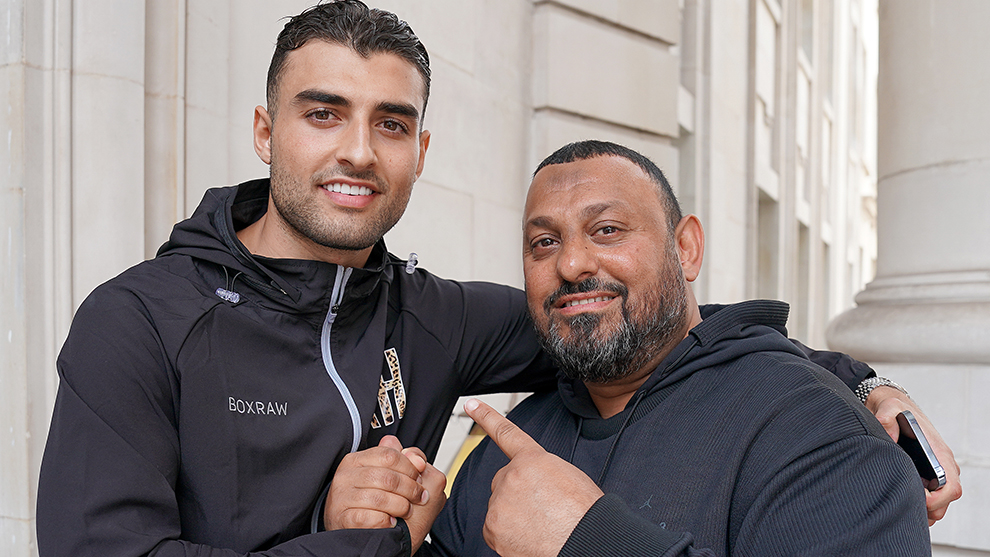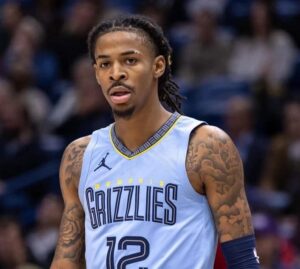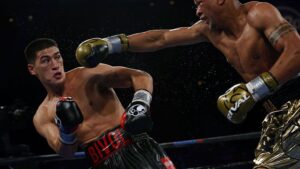TWENTY-ONE years ago, I was taken by my dad to London Docklands to watch the final fight of Naseem Hamed’s professional boxing career. Neither Hamed, my dad nor I knew we were about to experience Hamed’s last fight yet the possibility became more of a reality the further the fight progressed. Sure enough, by the time the fans around us were stamping their feet on the floor and chanting “Bruno! Bruno! Bruno!” it seemed likely we had seen the last of the “Prince”.
He was just 28 at the time, Hamed. Back then that seemed old to me, particularly given the nature of his performance that night against Manuel Calvo and the fact he had previously lost against Marco Antonio Barrera. However, I was to later learn that 28 is young, not only in boxing terms but in more general terms as well. Now, in fact, with me currently eight years older than Hamed was when he retired, I marvel at how he, unlike so many, was able to retire at that age and not unravel completely.
Two decades on from that final fight, Hamed is back, as is often the case in boxing. Thankfully, though, in this instance Hamed is not back in any fighting sense but will instead be watching, guiding, mentoring. Having been away from boxing for so many years, he is now back, specifically, for the sole purpose of overseeing the professional career of his 23-year-old son, Aadam, whose debut takes place in Poland on August 26.
Given his surname, of course, Hamed’s pro debut will be a debut largely different from most. It will, for one, act as a chief support bout to a world heavyweight title fight between Oleksandr Usyk and Daniel Dubois. It will also be spoken about, as it was at the press conference to announce it, as though it means something more than just a novice moving their pro record from 0-0 to 1-0.
After all, Aadam Hamed, by turning pro, has become the latest in a long line of boxers whose career is but an extension of their father’s; that is, a neat and tidy continuation for those with a weakness for the familiar and the nostalgic. It is, for these fans, both comforting to see a household name return to their screens and also a little terrifying, for it naturally reminds them of their own mortality and the unstoppable creeping of age. (Indeed, when Naseem Hamed was filming the now infamous documentary Little Prince, Big Fight ahead of his defeat to Barrera, Aadam Hamed could be seen being carried in his father’s arms from an airport to a limousine.)
In recent years we have seen a spike in this trend, motivated perhaps by the ease with which brands can now be built and sustained on social media. Start, as Hamed will, with a famous and recognisable surname and you are surely, thanks to the tools now at our disposal, able to sell yourself and this brand in a way that simply wasn’t possible years ago. Other recent examples of this trend include Chris Eubank Jnr, who has done plenty with his father’s name, and also Conor Benn, who was on a similar trajectory before hitting an unforeseen road block last year. Then there is Campbell Hatton, whose story is interesting if only because it acts as a cautionary tale for those looking to run before they can walk. Still unbeaten, of course, Hatton endured some early teething problems when his name dwarfed his skill and experience level and he was pushed into situations from which, ideally, he should have been protected. Now, though, having learned this lesson, the pale-skinned Hatton has not only retreated into the shade somewhat, but has also seen an improvement in his performances as a result.
In light of this, one wonders how Naseem Hamed’s son will be moved. Certainly, on the one hand, there can be no debating the benefits of having a famous surname when starting out in boxing. It brings with it attention, an in-built fan base, and opportunities fighters of limited amateur pedigree – as sons of legends typically are – would ordinarily never receive. Yet, on the other hand, these boxers, while similar to their fathers in so many ways, are also different from them in many others. Think, for instance, of how the upbringings of Chris Eubank and his son differed and how their mindsets were in turn shaped by these wildly contrasting experiences. Now do the same with Ricky Hatton and his son, and Nigel Benn and his son, and Naseem Hamed and his son. Essentially, whereas the original was invariably a product of hardship and struggle, the next generation, or newer model, is merely the reward of this hardship and struggle, not unlike droplets of sweat from a wrung towel; meaning, in stark contrast to their fathers, who used hardship and struggle as a performance-enhancing tool, the sons of champions are instead naturally weakened by the very thing that made them. They are soft, in other words. Softened by both their upbringing and their privilege. Soft in a way their fathers never could be.

Ricky Hatton with his son, Campbell, now 12-0 (Mark Robinson)
Such is the shift, in time I have gone from believing all fighters come from extreme poverty, something I have never experienced, to now viewing the sons of these fighters as privileged in a way I, born to working-class parents, have never been. Similarly, I today look at what it means to be a father differently than I once did.
It was a year after watching Hamed’s last fight (make it 20 years next week), in fact, that my own father drove me to Norwich Sports Village to cover my first ever boxing event as a 16-year-old “reporter”. It was a six-hour round trip and all just to see Howard Eastman defend his European middleweight title and David Walker and Spencer Fearon produce, admittedly, one of the greatest short fights I have ever watched. That night my father, perhaps even more than me, was thrilled to be there and never once complained. On the way back, driving through the early hours of the morning, we ate KFC and I can still remember how he expertly wedged the bargain bucket between his thighs as he operated the steering wheel using only his elbows. I thought then, as I constantly glanced into the overheard mirror to ensure his eyes remained open, that this was simply what fathers did, oblivious to how I had taken it for granted.
The truth is, my father, like most good ones, is only as good as he is allowed to be by a mother; a mother who was that night at home singlehandedly caring for their four other children. However, mine I now know is considerably better than the majority and certainly better than many I have encountered during my time in boxing. More than that, it is with age that I have come to appreciate that while the feats of boxers have and continue to inspire me on a superficial level, they are not a patch on the feats of my old man; firefighter rather than prizefighter, therefore a member of a far nobler cause.
One only hopes the sons of great boxers think about theirs in similar terms. One only hopes they have received from them more than just a surname and a head start.

Kostya Tszyu and Tim Tszyu, who has so far made great strides as a pro (Mark Evans/Getty Images)






